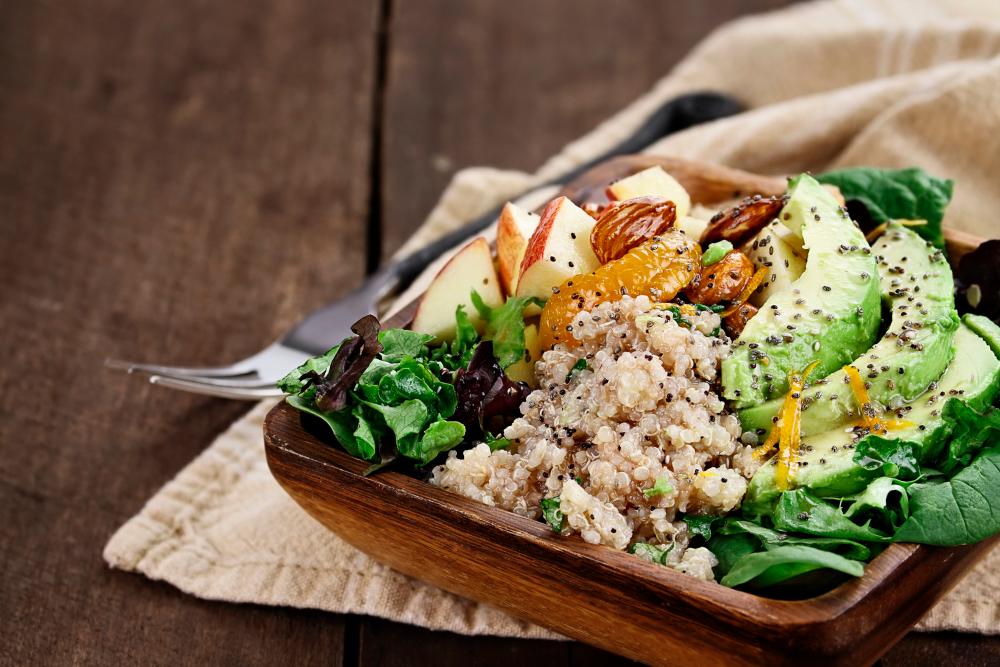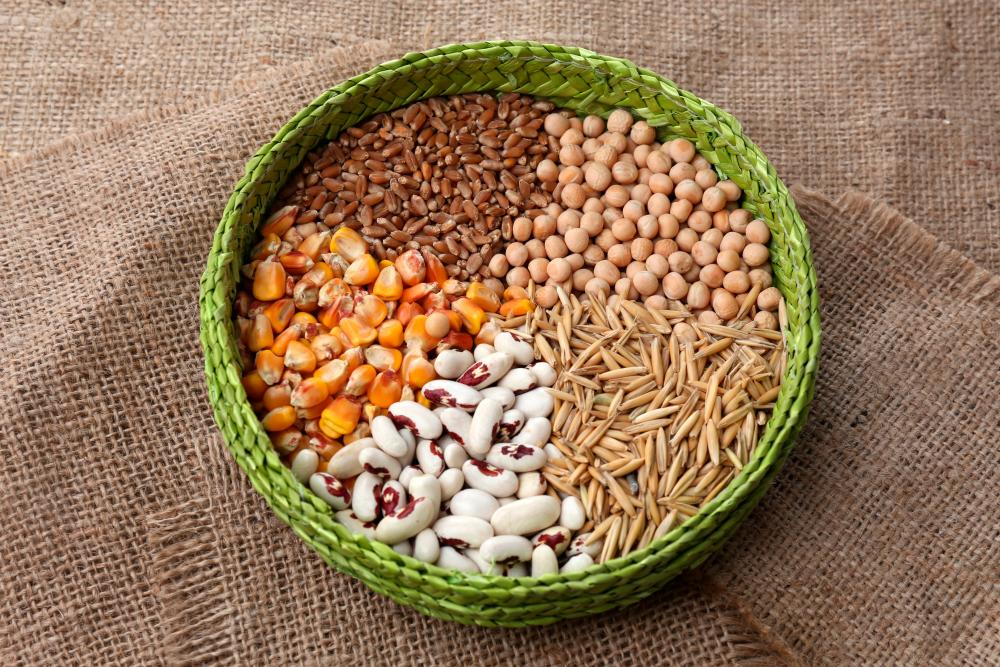GRAINS are an essential part of a healthy diet – they are a plant food that provides us with essential vitamins, minerals and carbohydrates that fuel our muscles and brain with energy and more.
But not all grains are created equal. For example, refined grains, such as white rice and enriched wheat flour, contain only part of the grain.
These refined grains give baked goods a softer texture and an extended shelf life, but end up making the product less nutritious.
Whole grains are healthier because they contain higher amounts of vitamins, minerals, essential fatty acids, antioxidants, phytochemicals and fibre, which will help you feel full and better maintain your weight.
Whole grains are particularly good for preventing the following three diseases:
Cardiovascular disease: Soluble fibre helps lower cholesterol and may also help prevent heart attacks and strokes.
Type-2 diabetes: Essential minerals help reduce the risk of developing diabetes.
Cancer: Phytoestrogens (plant estrogens) found in whole grains may protect against some cancers. It also contains essential minerals, such as magnesium, selenium, copper and manganese.
Below are the five most common grains that you can easily incorporate into your diet, as well as some of the nutrients that you can enjoy when eating them.
Whole wheat: These grains are either present in their whole form or ground into a flour while retaining all parts of the seed (bran, germ and endosperm). Compared with other types of grains, whole grains are better sources of fibre and other important nutrients, such as B vitamins, iron, folate, selenium, potassium and magnesium.
Oats: Oats contain polyphenols, which act as antioxidants and are a powerful anti-inflammatory agent. They are also high in beta-glucan, a type of soluble fibre that helps lower LDL (low-density lipoprotein), or “bad” cholesterol, and may reduce the risk of some types of cancer.
Oats may also help lower blood pressure. They are a good source of fibre, iron, magnesium, phosphorus, zinc, copper, thiamin, manganese and selenium.
Barley: Barley is traditionally served in soups, salads and grain bowls. It contains a higher amount of dietary fibre than any other grain, and has an array of phytochemicals and the soluble fibre beta-glucan. These antioxidants may help reduce bad cholesterol and build immunity.
Corn: Corn can be extremely healthy when eaten whole. A good source of B vitamins, magnesium and phosphorus, whole corn is also thought to increase healthy gut flora, which can ward off diabetes, heart disease and chronic inflammation. Yellow corn is also high in antioxidants.
Quinoa: Quinoa is super nutritious. It is a source of complete vegetable protein because it contains all essential amino acids. It also contains fewer carbohydrates and more protein in comparison to other grains. Quinoa is also high in magnesium, phosphorus, manganese and folic acid.
Each of these whole grains can be incorporated into your daily meals in a number of ways, just by making a simple switch.
You could begin by choosing whole grain cereals for breakfast, or by trying out new whole grain-based recipes.
For example, quinoa has been noteworthy as a healthier substitute for white rice, while oats have gained popularity among those looking for quick, easy-to-prepare meals like overnight oats.
Whatever you choose, make sure that you also consume plenty of fruits and vegetables, and watch your portion sizes in order to reap the full benefits of a healthy, balanced diet.










